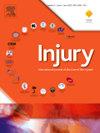独立体检质量体验的概念化:叙述性综述。
IF 2.2
3区 医学
Q3 CRITICAL CARE MEDICINE
Injury-International Journal of the Care of the Injured
Pub Date : 2024-10-16
DOI:10.1016/j.injury.2024.111965
引用次数: 0
摘要
背景:独立医疗检查是由专业医疗人员进行的一种独特的医疗保健评估,目的是就工人的伤病向工人赔偿计划的主要利益相关者提供公正的建议。在地方和国家层面上,有一系列专门的指南为最佳实践提供了指导,但对于所有相关人员而言,这些检查的质量仍令人担忧:方法:对独立医学检查的实践和报告的质量原则进行了叙述性审查。质量的定义是世界卫生组织提出的几个方面(有效性、安全性、以人为本、及时性、公平性、整合护理、效率)。学术文献(数据库:Medline、CINAHL、Embase)和灰色文献(Google 高级搜索)均为英文发表,无日期限制。根据独立医学检查的组成部分(独立医学检查员的批准和选择、独立医学检查、报告)对结果进行综合,然后映射到质量维度:结果:在现有的独立体检实践中,有效性、安全性、以人为本、及时性、公平性和效率等质量维度得到了部分体现,其中最常见的是体检本身。然而,在检查和报告过程的各个阶段,在以人为本和整合护理方面存在明显差距。加强质量实践的机会包括:邀请有工伤经历的社区成员加入负责任命独立医疗检查员的委员会;在检查过程中明确鼓励受伤工人提出问题和观点;准确记录受伤工人经历的整体报告;在报告定稿和提交之前与通常的治疗团队进行协商;直接向受伤工人提供口头总结和/或报告:尽管文献中描述的现有独立医疗检查实践中明显存在一些质量原则,但与急诊和社区医疗保健部门不同的是,质量的概念并未在此背景下得到普遍应用。为了推广循证实践、促进积极的文化转变并提升受伤工人和独立医学检查员的体验,建议在独立医学检查项目中正式嵌入全面的质量体验。本文章由计算机程序翻译,如有差异,请以英文原文为准。
Conceptualising the quality experience for independent medical examinations: A narrative review
Background
An independent medical examination is a unique healthcare assessment conducted by an expert health professional with the aim of providing impartial advice to key stakeholders in workers’ compensation schemes regarding a worker's injury or illness. A range of dedicated guidelines provide for best practice at local and national levels, but concerns exist regarding the quality of these encounters for all involved.
Methods
A narrative review was conducted to explore quality principles underpinning practices and reporting of independent medical examinations. Quality was defined by dimensions outlined by the World Health Organization (effectiveness, safety, people-centredness, timeliness, equity, integration of care, efficiency). Academic (databases: Medline, CINAHL, Embase) and grey literature (advanced Google search) published in English was searched with no date limits. Results were synthesised according to the components of independent medical examinations (independent medical examiner approval and selection, independent medical examinations, reporting) and then mapped to quality dimensions.
Results
The quality dimensions of effectiveness, safety, person-centredness, timeliness, equity, and efficiency were partly addressed in existing independent medical examination practices, most commonly within the examination itself. However, there were prominent gaps in person-centredness and integration of care across all stages of the examination and reporting process. Opportunities for strengthening quality practices included: inviting community members with lived experience of workplace injury to serve on boards responsible for appointing independent medical examiners; explicitly encouraging questions and perspectives from injured works during examinations; holistic reporting that accurately captures injured workers’ experiences; consultations with usual treating teams prior to report finalisation and submission; and providing verbal summaries and/or reports directly to injured workers.
Conclusion
Although some quality principles were evident in existing independent medical examination practices described in the literature, unlike the acute and community healthcare sectors, the notion of quality was not universally applied in this context. To promote evidence-based practice, foster positive cultural shifts, and enhance experiences of injured workers and independent medical examiners, formally embedding a comprehensive quality experience in independent medical examination programs is recommended.
求助全文
通过发布文献求助,成功后即可免费获取论文全文。
去求助
来源期刊
CiteScore
4.00
自引率
8.00%
发文量
699
审稿时长
96 days
期刊介绍:
Injury was founded in 1969 and is an international journal dealing with all aspects of trauma care and accident surgery. Our primary aim is to facilitate the exchange of ideas, techniques and information among all members of the trauma team.

 求助内容:
求助内容: 应助结果提醒方式:
应助结果提醒方式:


